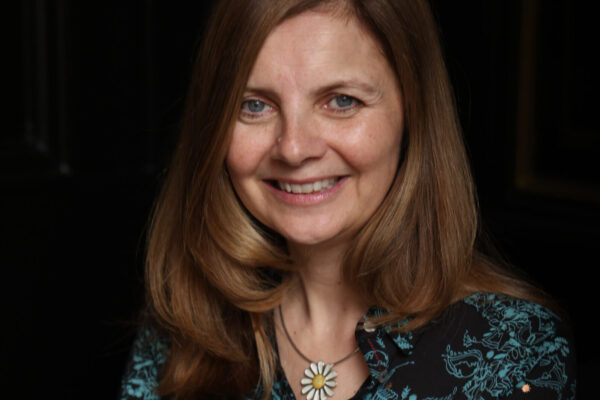Exclusive Interview with Author Gillian Shirreffs
Elephant is the story of a writer diagnosed with breast cancer.

Elephant is an unexpected book. Gillian Shirreffs says neither she nor her publisher were expecting her to write it. It’s also unexpected in form, making use of her emails, tweets, messages and thoughts following a breast cancer diagnosis and during her treatment. We invited Gillian to tell us something about Elephant ahead of her appearance at Wigtown Book Festival.
Elephant is the story of a writer diagnosed with breast cancer.
It’s not the book I expected to write and it’s not the book my publisher expected to publish. He thought I was beavering away on a novel called The Accidental Immortals; a dual timeline story of three women who become accidentally immortal in the late 1600s.
But a different book wouldn’t leave me alone.
A book about mortality.
My own mortality.
I’ve been writing about illness for the last 18 years. At first, I didn’t have an option. I’d just been diagnosed with multiple sclerosis and was on bedrest, having lost the feeling from my toes to my chest. I was on my own for long periods and I was bored. I was also finding it difficult to sleep due to the nerve pain that accompanied the numbness.
Then, as I ventured back out into the world, the feeling having returned to my body, I made an unwelcome discovery. People were no longer at ease around me.
I seemed to make them uncomfortable.
I didn’t even need to speak to do so. My mere presence was all that was required.
My initial reaction was to feel shame, which I couldn’t understand.
I’d done nothing wrong, so it didn’t make sense to feel this way.
But I did.
My next reaction was to write.
I wrote stories in which I would give a character a neurological illness to see what would happen to them and the people around them; a sort of working out. It was also my way of trying to connect. To normalise illness. To cry out into the void that it can happen to any of us.
It’s therefore not surprising that fourteen years later when I found a lump and was told there was ‘something’ in my right breast that shouldn’t be there, my response, once again, was to write.
I wrote my way through diagnosis, treatment and the aftermath of treatment. Sometimes longer pieces trying to make sense of the situation, but most often just short bursts of words. Reaching out to friends, family, clinicians, and to anyone who might notice me waving as I bobbed along on the sea of social media.
As I wrote the emails, text messages and tweets that appear in Elephant, I didn’t expect they would one day form a book, but no matter how hard I tried to apply my mind to fiction, the story that is Elephant refused to leave me alone. It demanded my attention until I finally succumbed.
Excerpt from Elephant
Twitter post from the 24th of May 2022:
It’s day 250, so I’ve written a thing. #breastcancer
In the last 250 days I’ve had eight cycles of pre-surgical chemo, two surgeries, fifteen sessions of radiotherapy and am now in cycle three (of fourteen) of TDM1 treatment.
I lost my hair, my eyebrows, my eyelashes, my sense of safety, my sense of dignity (did I mention the campylobacter infection that accompanied the sepsis…?), but not my terrible sense of humour.
I couldn’t have managed it without each and every person who wrote me an email, sent me a text, posted me a letter, hand-drew me a card, knitted me a hat, gave me a scarf, bought me thick woolly socks, sent me flowers, went for a walk with me, made me banana bread, supplied me with Pan Drops, sent pyjamas across the Atlantic, carefully chose a book for me, dropped off a care package at the door, said a prayer for me, or took a moment to wish me well.
Getting to day 250 takes a village.
I’m very grateful for mine.
You can purchase tickets for Gillian's event online.
The PDF of the 2025 Wigtown Book Festival programme can be downloaded here, or book your tickets online.